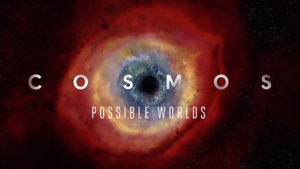
Can you still support the First Amendment, the blogging community and all that is holy in journalism, and still think that what Gizmodo did re: the lost iPhone was kind of sleazy? Is Gizmodo’s crime one of an ethical/moral nature, or one that is worthy of a police raid by elite members of SWAT — Seeking Whatever Apple Targets?
And were there any other examples of less-than-stellar behavior on the part of average folks not associated with the media or major technology corporations?
I doubt this audience needs a primer in the Great Lost iPhone Caper of 2010, but here’s the story so far, which does indeed begin like a joke in a Catskills lounge:
Apple engineer walks into a bar. Leaves his prototype fourth-generation iPhone (cleverly disguised as a 3GS iPhone) behind on a barstool. Guy sitting next to barstool asks a guy on the other side of the barstool if it’s his, and here, why don’t you take it and give it back to the guy who left? No one thinks of handing it over to the bartender, especially the guy who ends up with the phone. He turns it on and surfs around. Finds out via a Facebook page open on the phone who it belongs to. Waits for said Facebook user/Apple engineer to come back to bar. Decides to take it home. He wakes up, the phone is bricked/wiped. Guy calls Apple support and is given a ticket number. No one from Apple calls back. Guy discovers the phone is really something different, like from another alternate universe where iPhones have forward-facing cameras. Flirts with tech blog Engadget, ends up selling it to another tech blog, Gizmodo, for US$5,000. Gizmodo tears it apart, shoots pics and video and writes about it, gets tons of traffic — and a letter from Apple’s head lawyer asking for it back.
Does any of that help you determine if Apple’s property is lost, stolen, misplaced? You make the call — just not on a bricked prototype iPhone.
Bring In the Cops
That’s enough of a chronological workout — all this happened over a period of weeks, beginning in with the iPub crawl in mid-March and ending with Gizmodo’s recent publication of its findings. But then last weekend the Gizmodo editor who wrote about the prototype iPhone and conducted the video breakdown of it came home to find San Mateo County law enforcement officials raiding his home and confiscating his computers. They had broken in the door to his house. A police officer showed Chen a warrant issued by a judge, saying the officers were looking for evidence that the property had been used in commission of a felony. Chen showed police a letter from the legal counsel of Gawker Media, Gizmodo’s parent, stating that a search warrant can’t be used to seize a journalist’s property. The search continued anyway.
So this is where we are — the technosphere has been echoing with righteous indignation about the raid. Especially after Yahoo News dug up information that the special task force conducting the raid, the Rapid Enforcement Allied Computer Team (REACT) has Apple as one of the companies on its steering committee. REACT was formed to help with things like computer fraud and identity theft, but now it apparently has another duty according to Cupertino’s critics: serving as Steve Jobs’ personal secret police.
This episode had officially made the hyperspace jump from tech blogger fodder to mainstream media story before the police raid happened. But thanks to REACT, “The Daily Show’s” Jon Stewart sat up and paid attention this week, and the result was a hilarious coring of Apple. Stewart himself admitted he was on shaky ground, since the Apple crowd is his audience, but he thinks (as pointed out in this column last week) that Apple is becoming the Microsoft of the ’90s.
I really wish REACT hadn’t shown up. Yes, police raids on homes regarding lost/stolen iPhones are a tad over-the-top, shall we say. But my reason for wishing away the image of police officers kicking in Chen’s doors has more to do with how it firmly places Gizmodo in the “victim” category.
Before the police action, the Web meme regarding all this revolved around the journalist-vs.-blogger question, and whether or not paying to take possession — however temporary — of a company’s unreleased product was somehow up there with receipt of the Pentagon Papers. It’s not. No public service is being protected here, folks. No greater good is being served, and so it becomes the Web’s version of checkbook journalism/blogging — paying for celebrity paparazzi shots of a kind, only in this case the “celebrity” is the next-generation iPhone.
The New York Times‘ David Carr wrote an excellent deconstruction of how Gizmodo is playing moneyball with the new economics of blog traffic in his “Media Equation” column. Forget about slippery slopes; this incline has already been greased by outlets like The National Enquirer, TMZ.com and even broadcast morning shows paying for exclusive interviews with average folks caught in big-time news events with flights to New York and stays in nice hotels. Internet traffic metrics have morphed into Nielsen overnights, with just as much at stake in terms of advertising and job security for those doing the writing.
Ever Hear of Lost and Found?
So once again, it’s all about Apple and how the media can’t stop chewing on this particular piece of fruit. But the clues dropped along the way in this story point to some signs of slipping ethics overall in this second decade of the 21st century. This tale doesn’t get told if some people along the way had remembered some childhood direction about how to treat their fellow human beings, doing unto others, etc.
The biggest clue: I’m sure that bartender at the Silicon Valley-area beer garden where the prototype iPhone was originally lost has three “lost and found” baskets somewhere under the beer taps — one for car keys, one for wallets/credit cards, and one for iPhones. Why didn’t either gentlemen on both sides of that barstool just hand it over to the barkeep, like most decent people would do? We all know that pint after pint of good German beer can make inhibitions, intelligence and clothes disappear. Apparently that whole right/wrong thing vanishes too with certain people. You take an expensive smartphone that’s not yours … home?
The guy who ended up selling the phone to Gizmodo starting playing with somebody else’s property while at the bar. I find that a little creepy. Sure, he may have been looking for information as to whoever it belonged to, but he could have found other personal info as well. How deep do you drill into an lost iPhone, anyway, to dig up data that can help you get it back to the rightful owner?
As Gizmodo says, the guy who took the phone home tried to tell Apple about it, and was given a customer service number. So maybe Apple is indeed guilty of not following up on this. But was it pitched to customer service as a potentially lost prototype from their labs? How hard did this gentleman make his case that he had something of Apple’s that might be considered very valuable?
Once Gizmodo paid for the iPhone, they set about tearing it up, making sure they had the real thing. You could argue that they could have put the same amount of work into getting it back to its rightful owner(s), but then they don’t get their scoop. However, the management could have tried to work out an arrangement with Apple to get some kind of exclusive “official” first look at the new iPhone before June — or a Gizmodo-only, no-holds-barred interview with Jobs — by showing what nice people they were to bring the phone back right away and not after milking it for all the Web traffic they could.
Yeah, I know. It sounds a little naive to me too. I guess we all should say “hi” to the year 2010 and the new Web-based situational ethics.
TechNewsWorld columnist Renay San Miguel started his journalism career with his hometown newspaper in Texas in 1979. He moved to television in 1985, anchoring, producing and reporting in Austin, Dallas and San Francisco before joining CNBC as a technology correspondent from 1997 to 2000. Following a stint with CBS MarketWatch, which included filing tech stories for the CBS Early Show, San Miguel joined CNN Headline News in 2001 as an anchor/tech reporter. He also contributed digital content for CNN.com. After his 2007 departure from CNN, San Miguel founded Primo Media and now freelances in television/online reporting and media consultation. San Miguel is host/managing editor for Spark360, which produces news-style paid content for SMBs distributed via branded Web video portals and social media platforms.




















































I don’t see this as a First Amendment issue. Gizmodo is free to publish anything they want to say about the iPhone.
The issue is whether they can buy stolen property to obtain a prototype device, then dissect it and publish the results to the world, for the purpose of making money for themselves. And the answer had damned well better be "No".
I think this should be treated as industrial espionage. Gizmodo’s careless, paparazzi journalism may have cost Apple and its investors millions of dollars, and just so they could get more hits on their website. They would be ripe for a lawsuit from Apple’s investors, if they had any assets.
A journalist’s ID is not a license to steal. What’s next… breaking into Apple’s labs? Consider this scenario: an Apple employee drops his ID badge and electronic pass-key in a bar. Someone finds it and sells it to Gizmodo. They use it gain entry to Apple’s lab (they would claim they were returning the badge to Apple!) and while they’re there they snap photos of Apple’s prototypes, and publish those.
That’s essentially what they did. When they cracked open that prototype, they were invading Apple’s private property, to which they had only gained access through an accidental loss.
Thank you for your trust. And I trust you will never be going to a restaurant or bar EVER, since their employees are so "untrustworthy"? Honesty is an unspoken code of honor in the services industry that does not seem to trickle down to apply to "journalists". Or at least they don’t think it should. Why not just give it to the Police and not dink with it if "the bartender is so untrustworthy" and be done with it? Too logical? It goes without saying turning it in is what one should do. Powell came back and asked the "untrustworthy" staff if anyone had turned it in, counting on the "honesty" of the person that found it. As would or should anyone. Obviously he placed trust in both the staff and the person that found it. He was only half right.
I hope the staff’s at all the bars and restaurants that you go to, that’s right you don’t go to them because the employees "can’t be trusted", do not find out about your comments. It’ll be hell to get a table and service. Damn! Look at me. I’m acting and talking just like all those slighted "journalists".
Sir, you are as misguided as Hogan and Chen are guilty.
It’s a "Golden Rule" that some people do not seem to think applies to them.
AmzdCnfsd, excellent job.
Why is there an assumption that the manager or bartender at a bar is more honest or ethical than a customer? Rather than GIVE a found device to the manager, why not give them your phone number so if someone comes looking for a lost device the manager can give the searcher your number. Yeah it’s more trouble, but I trust myself more than some guy working at a restaurant. Plus that way someone might actually thank me, (hopefully someone hot) instead of the bartender looking at me like I AM crazy.